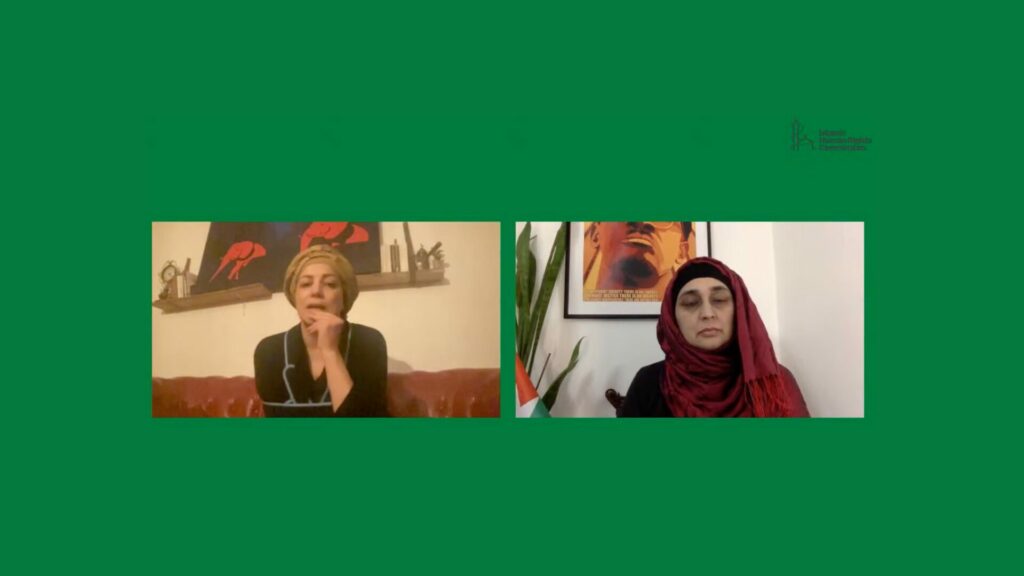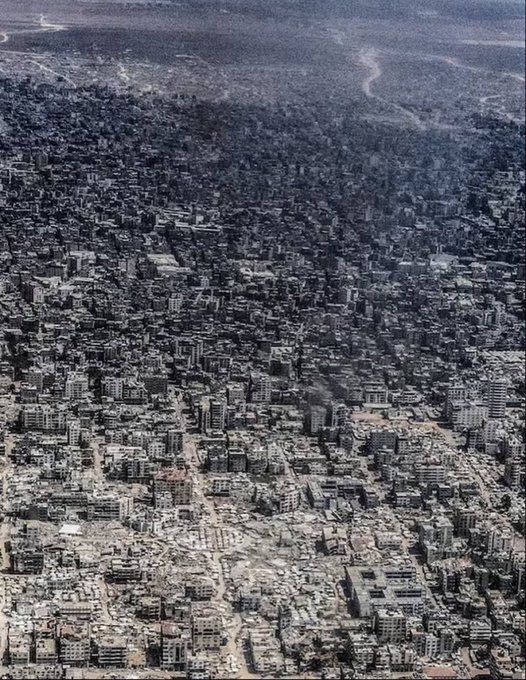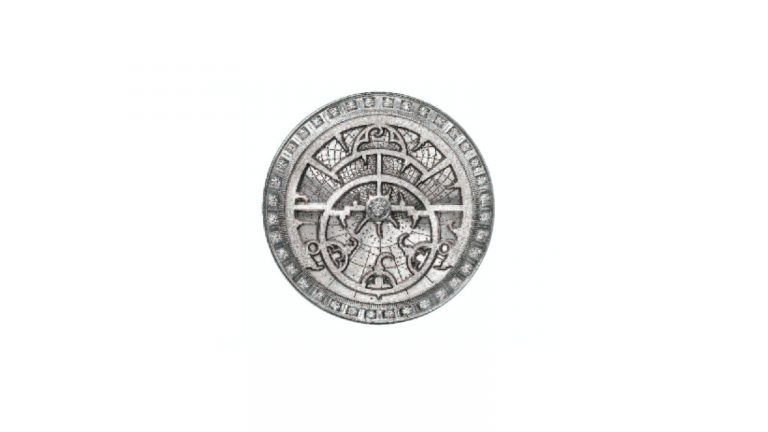IHRC hosted an engaging author evening on Thursday, February 6, 2025, featuring Houria Bouteldja and her latest book, Rednecks and Barbarians: Uniting the White and Racialized Working Class. The online event was moderated by Arzu Merali.
Watch the discussion:
The conversation has been edited for better readability. Read the full transcript here.
Arzu commenced with an introduction to Houria’s work and a brief overview of the book. Houria started her talk by reading an extract from page 107, the start of a chapter called ‘Do White’s love Children.’:
“One day, as I was leaving a debate I had been invited to participate in, I was challenged by a White leftist in her forties. She could hardly conceal her anger and spoke in a febrile voice. Here is my recollection of our brief exchange:
Her: Madam Bouteldja! You are known to us and we know that you don’t give a damn about the plight of homosexuals. That is your right I guess, but there’s one question you can’t escape with your morality in tact and it has to do with our children. You can be against gay rights, you can hold forth against homosexuality as a western phenomenon but, the fact is that there are children at stake. Do you know what a child with two mums and two dads has to endure? Do you know what it’s like for an 8 year old to put up with the jeering and the mockery of their classmates? I resent you for that and I want you to know it.
The Children, the sledgehammer argument had been released.
Me: May I ask you a question?
Her: Yes
Me: Do you know if there are children in Mali?
She looked at me taken aback, I repeated my question: “Do you know if there are children in Mali?”
Her: I don’t understand what you mean by this question. Of course there are children in Mali.
Me: You claim to know that there are children in Mali but I don’t think you do. You don’t know if there are children in Mali or not because you see I’ve been watching you for many months. You! The France that claims to love children. I’ve been watching you, I’ve been watching your confrontation between two white France’s unfold between the debate on equal marriage; Conservative France versus Progressive France. Right-wing and far-right France versus Left-White and Far-Left France. Reactionary France versus Humanist France. You, madame, identify with humanist France. I’ve seen France mobilise powerful energies and affects fervour and faith on both sides. Indeed, it was rather impressive because for both of these France’s, something deeply ethical was playing out especially around the question of children but let me continue. This lasted several months but did you know that Francoise Allende declared war on Mali precisely during this time?
Her: I don’t recall.
Me: I do, and do you know why? Because I know that there are children in Mali. And do you know how many marches the left organised to condemn this war? None. You didn’t know this either because the Left you belong to, the Left that loves it’s children just as the Right does, doesn’t know that there are children in Mali because if it did, it would be outraged and it would also be outraged for those children who were killed or orphaned by all the dirty, French wars. So, when you claim to know that there are children in Mali, you are lying. I am telling you something that you don’t know, I’m just like you. You don’t know that there are children in Mali just like I don’t know that you have children. How could I be worried about them when I don’t even know that they exist?”
Arzu: How do you see the point of break where we can weaken that cycle? Can it be opened up?
Houria: “Today, it is very difficult to overcome this empasse because it was written two or three years before the war in Gaza. How many children had been killed in this war? What I wrote in this book is the perfect example of the way the West does not care about children, doesn’t care at all because half, I think, of the people that died in Gaza are children.
So, first it’s very difficult to be positive, to have faith, to keep its face in humanity and at the same time, we have to fight. So, I try to imagine that it is possible. The first reason why it is possible is because Whiteness is not biological. Whiteness is historical. Something that was constructed by history can be distracted by history, so whiteness can be destroyed. If I think and if you think that whiteness cannot be destroyed, first, it means that you are racist because you think from a biological point of view and the second, that if you don’t believe that there’s no use to fight. We have to capitulate right now, but I understand that people are very pessimistic, I understand that perfectly. But I think that if we have children we must, it is a duty to fight. So what can/makes me believe that something is possible? I think that the episode of the yellow vests in France was a kind of example of the fact that Whiteness not always, racism is not always dominating people.”
She continued that the French public have been conditioned with Islamophobia for over 20 years, but the result has been that not all the people are Islamophobic:
“during this episode, Islamophobia was not the main motivation to get involved in the struggle against the state… So, at this moment, white people and us, we had the same enemy and it was possible to make alliances on this objective and I think it’s still the case because in France there is a kind of Left which represents 20% of the electorate who is based on the struggle against capitalism, against racism and for Palestine. I am not saying that this left is decolonial, not at all. I am not saying that this Left is revolutionary, but its political project is correct so in France there is this little hope. But when we see what is happening in Italy, in Germany, in the United States with Trump, it is so scary, it is so threatening for the world that I don’t know if this alternative in France can overcome this situation.”
Arzu said that she feared that we haven’t learnt the lessons from the 70’s onwards and further asked Houria if what is happening now any different to what happened in the past or if is this a completely new scenario. Houria responded:
“The fact is that the French state is getting fascist, but at the moment there is a positive evolution in the Left in this precise moment, it makes the state get more and more fascist because when the kind of anti-racist and anti-imperialist left is becoming more aware of what I called racial contract and what this Left is trying cut, to make a rupture about this racial contract, this is the moment when the fascist state, the racist state becomes more and more vigorous, more and more fascist. It is a very strange moment because I’ve never seen a white Left being so anti-racist, so good really”. She elaborated on the correlation between the left being more anti-racist but also how the state is becoming more fascist. The discussion further delved into the Left in France especially in relation to this phenomena and leftists gravitating towards the political right.
Houria: “All the citizens in the capitalist countries are going to the right and we have in our communities, in the racialised communities, a lot of people saying that they don’t care, they can vote in the far-right–not because they believe in the far right but because they hate the Left [and] they think that the Left betrayed them. I am talking about the racialised people but it’s the same for the Whites.”
Arzu mentioned the theme of revolutionary love, which is to reach out to the far-right in order to bring about disruption.
Houria: “We are talking about those who still vote Left or who don’t vote at all. It’s a mass. I think the one’s who don’t vote in France are, is the first party in France among the popular classes. So we have to reach them, we have to talk to them and for those who are voting for the far-right. It depends because it think it’s important to make a difference between being a far-right voter and being a fascist. I think the elites are really fascist and I think apart of those who are voting for the far-right cannot be treated as fascist. I don’t think that they want a fascist government but they are racist for reasons that we have to understand. I am not saying we have to understand or to complain for them. We have to understand for political reasons and I think one of the reasons they want the far right is because the discourse of the far right is a protective discourse. It’s a discourse that says “We are going to protect you.””
She stated that we have to understand the anxieties that white people have in world that is vastly changing and becoming less and less democratic:
“Decolonial people and the Left has to address and find answers to that fear.”
Rednecks and Barbarians and Whites, Jews, and Us: Toward a Politics of Revolutionary Love can be purchased from the IHRC Bookshop.





